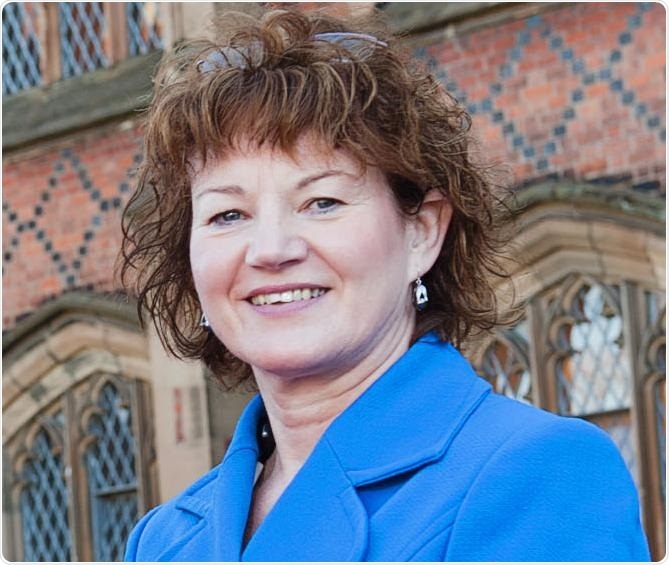CanStaging⁺, a user-friendly tool aimed at facilitating the recording of comparable cancer staging data worldwide, has been launched.

Dr Anna Gavin from the Northern Ireland Cancer registry Centre for Public Health at Queen’s University Belfast. Image Credit: Queen’s University Belfast
The tool has been developed by researchers from Queen’s University Belfast, the Northern Ireland Cancer Registry (NICR), the International Agency for Research on Cancer and the Union for International Cancer Control (UICC). CanStaging+ will facilitate the recording of comparable cancer staging data worldwide via simplified staging software that harnesses new digital technology.
Cancer staging – the extent to which a cancer has spread at diagnosis – is crucial in guiding the clinical care of individual patients. At the population level, staging provides useful information on health system performance to better understand the effectiveness of health campaigns, screening programmes and cancer management.
The collection of staging data at population-level is currently undertaken by population-based cancer registries (PBCR). There is a large variation of data collected making it difficult to benchmark and to develop global strategies.
Dr Anna Gavin from the Northern Ireland Cancer registry Centre for Public Health at Queen’s University Belfast who led the work, said: “Cancer staging is crucial to monitor and evaluate outcomes and cancer control activities. Almost half of registries in Latin America and the Caribbean (52%) report staging information compared to 96% of registries in North America and Europe. A lack of data and inconsistency is a huge problem in high-income countries too where there were 6-37% of missing staging data for colorectal cancer across seven countries within the International Cancer Benchmarking Partnership between 2010 and 2014."
We urgently need a global solution to increase the amount of and consistency of staging internationally. I am delighted that this tool will take us much closer to bridging these gaps enabling a global, reliable approach.”
Dr Anna Gavin, Northern Ireland Cancer registry Centre
To mark the launch of the CanStaging+ tool, an accompanying article has been published in The Lancet Oncology.
Isabelle Soerjomataram, Deputy Head of the Cancer Surveillance Branch at the International Agency for Research on Cancer, added: “The tool responds to the urgent global need to improve the collection of comparable and complete cancer staging data at the population level. The continuing COVID-19 pandemic has disrupted the ability of health-care systems to deliver services across the cancer continuum.
“It is of vital importance to resume cancer control activities, including early diagnosis, population-based cancer screening, timely treatment, continuous monitoring, and reporting of cancer staging.”
An earlier version of the tool launched in 2005 attracted users from 55 countries. CanStaging+ is expected to attract users from more countries as it can be downloaded for use offline. The updated version includes essential information that will support developing countries to measure disease stage from limited available information, more cancer sites and guidelines on data collection to enable better estimations of reasons for international differences in survival.
The tool is available to cancer registries around the world free of charge with training.
CanStaging⁺ has been partly funded by the International Cancer Benchmarking Partnership (ICBP).
Source:
Journal reference:
Soerjomataram, I., et al. (2021) CanStaging+: an electronic staging tool for population-based cancer registries. The Lancet Oncology. doi.org/10.1016/S1470-2045(21)00188-1.